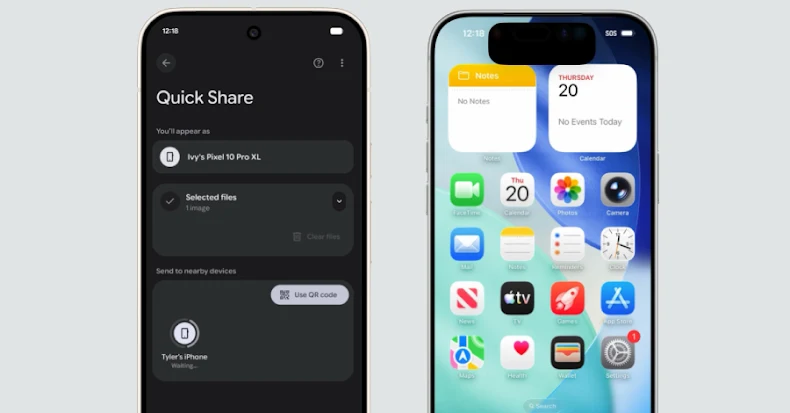Google Enhances Android’s Quick Share with AirDrop Compatibility and Rust-Based Security
In a significant development, Google has updated its Quick Share feature to be compatible with Apple’s AirDrop, facilitating seamless file transfers between Android and Apple devices. This enhancement is currently exclusive to the Pixel 10 series, with plans to extend support to other Android devices in the near future.
To utilize this cross-platform functionality, users must adjust their device settings accordingly. Apple device owners need to set their AirDrop visibility to Everyone for a 10-minute window to receive files from Pixel 10 users. Similarly, Android users must configure their Quick Share visibility to Everyone for 10 minutes or activate the Receive mode within the Quick Share interface to accept files from Apple devices.
Security is a cornerstone of this update. Google has implemented a multi-layered security strategy, leveraging the memory-safe Rust programming language to establish a secure sharing channel. This approach effectively mitigates memory safety vulnerabilities, enhancing the system’s resilience against potential attacks.
An independent assessment by NetSPI in August 2025 affirmed the robustness of Google’s implementation. The evaluation highlighted that Google’s version of Quick Share does not introduce new vulnerabilities into the protocol’s ecosystem. Notably, the file exchange process is more secure, as it prevents information leakage—a common issue in other manufacturers’ implementations. A minor information disclosure vulnerability was identified during the assessment, which could have allowed attackers with physical access to view image thumbnails and SHA256 hashes of contact information. Google has since addressed and resolved this issue.
In addition to this update, Google has been proactive in enhancing user security. The company reported blocking over 115 million attempts in India to install sideloaded apps that sought sensitive permissions for financial fraud. Collaborating with financial services like Google Pay, Navi, and Paytm, Google is piloting a feature that alerts users when they open certain apps during screen sharing with unknown contacts. This alert provides an option to end the call and stop screen sharing, thereby protecting users from potential scams.
Furthermore, Google is developing Enhanced Phone Number Verification (ePNV), a new Android-based security protocol designed to replace SMS OTP flows with SIM-based verification, thereby improving sign-in security.



